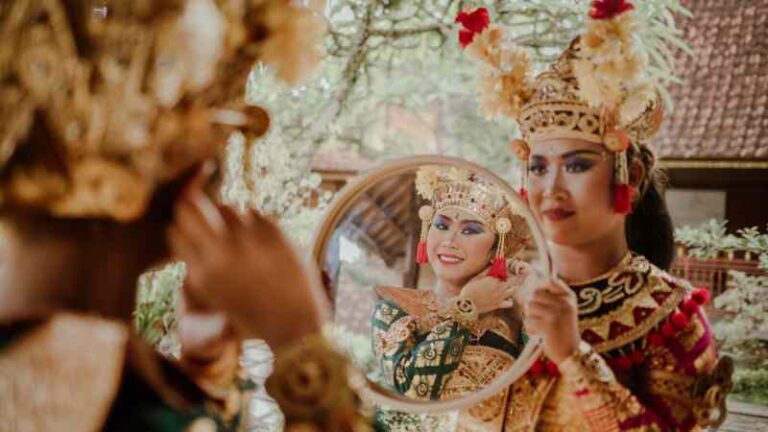Introduction
In a world increasingly burdened by the consequences of climate change and unethical labor practices, making eco-friendly choices in our daily lives has never been more critical. The fashion industry, a significant player in global consumption and waste, stands at a crossroads between continuing its harmful environmental impact and adopting more sustainable practices. Enter Eco-Chic, a revolutionary concept that marries style with sustainability, proving that fashion can be both fabulous and friendly to our planet. Eco-Chic is not just a trend but a movement towards using eco-friendly materials and ethical practices to craft accessories that don’t just complement your outfit but also tell a story of positive change. Join us on this enlightening journey to discover sustainable and ethical accessories that will not only elevate your style quotient but also help preserve the beauty of our earth for generations to come.
Why Eco-Chic Matters
The environmental and ethical implications of traditional accessory production are both vast and varied. From the copious amounts of waste generated to the greenhouse gas emissions released during manufacturing, the fashion industry’s impact on the planet is undeniable. Consider the following: The fashion sector is responsible for about 10% of global carbon emissions and nearly 20% of wastewater. Moreover, a staggering 85% of textiles end up in landfills each year, contributing to an ever-growing environmental crisis.
The ethical considerations in the fashion industry’s supply chain further highlight the need for change. Many workers in the fashion industry, particularly in developing countries, face exploitative working conditions, earning meager wages in unsafe environments. This grim reality calls for an urgent shift towards ethical production practices that ensure fair wages, safe working conditions, and respect for human rights.
Thankfully, a growing body of research and real-life success stories underscore the critical need and growing demand for eco-friendly options. A study by the University of Manchester highlighted that if the fashion industry shifts just a fraction of its production to more sustainable materials, such as organic cotton or recycled polyester, it could significantly reduce its water, energy, and chemical footprint. Furthermore, sustainable brands have been shown to play a pivotal role in reducing waste and promoting sustainability. For instance, brands like Patagonia and Stella McCartney have led by example, showcasing how adopting sustainable materials and ethical labor practices not only benefits the environment but also resonates with consumers, who are increasingly making conscious choices.
Moreover, the rise of sustainable brands has also been instrumental in driving the industry towards more responsible production and consumption practices. These brands are not just committed to minimizing their environmental impact through reduced waste and lower greenhouse gas emissions, but they are also deeply invested in ensuring that their products are produced under fair labor conditions. Brands like Veja and Eileen Fisher, for example, have set new standards in the industry by demonstrating that it is possible to produce high-quality, stylish accessories without compromising on ethical values or sustainability.
How to Identify Sustainable and Ethical Accessories
In the quest for a more sustainable and ethical wardrobe, accessories play a pivotal role. But with the fashion industry often shrouded in complex supply chains and marketing jargon, how can we ensure that our choices genuinely reflect our eco-conscious and ethical values? Here, we delve into the materials and certifications that hallmark true sustainable and ethical accessories.
Materials Matter
Organic Cotton: Unlike conventional cotton, organic cotton is grown without toxic pesticides and synthetic fertilizers. It uses far less water and is better for the health of the soil and farming communities. For example, the Water Footprint Network highlights that organic cotton reduces water consumption by up to 91% compared to conventional cotton.
Recycled Fabrics: Utilizing recycled materials like polyester, which is often made from plastic bottles, reduces the demand for virgin resources and the overall carbon footprint. The Global Recycle Standard (GRS) reports that using recycled polyester reduces CO2 emissions by up to 32% compared to regular polyester.
Vegan Leather: Alternatives to animal leather, such as those made from pineapple leaves (Piñatex), mushrooms (Mylo), or even recycled rubber, offer cruelty-free and often more environmentally friendly options. These innovative materials not only spare animal lives but also minimize pollution. For instance, Piñatex production generates 80% less waste than traditional leather manufacturing.
Impact of Material Sourcing: The sourcing of materials significantly affects both the environment and ethical standards. Certifications like the Forest Stewardship Council (FSC) for wood and paper products ensure that materials come from responsibly managed forests that provide environmental, social, and economic benefits. Similarly, the Global Organic Textile Standard (GOTS) certifies that textiles are organically grown with eco-friendly and socially responsible production processes.
Certifications and standards
Fair Trade: This certification signifies that products are made according to standards that promote sustainable livelihoods, safe working conditions, environmental protection, and strong community benefits. For instance, Fair Trade-certified factories must adhere to rigorous social, environmental, and economic standards.
Closed-Loop Systems: A closed-loop system refers to a production process where waste is minimized, and any waste that is produced is reused in some way. Certifications like Cradle to Cradle (C2C) assess a product’s sustainability across five categories: material health, material reutilization, renewable energy and carbon management, water stewardship, and social fairness.
Recognizing Certifications While Shopping: Learning to quickly identify these certifications can empower consumers to make more informed and sustainable choices. Many eco-conscious brands will prominently display certifications on product tags or online product descriptions. For example, the OEKO-TEX® Standard 100 label assures that textiles have been tested for harmful substances, offering peace of mind about the product’s safety and sustainability.
By prioritizing these materials and certifications, consumers can navigate the complex landscape of sustainable fashion with confidence. Supporting brands and products that align with these standards not only contributes to a more ethical and sustainable fashion industry but also promotes a healthier planet and fairer working conditions worldwide.
Top Eco-Chic Accessory Brands You Should Know
In the realm of sustainable fashion, several pioneering brands have set the bar high, showcasing that style and sustainability can indeed go hand-in-hand. These brands are at the forefront of the eco-chic movement, offering consumers ethical and environmentally friendly alternatives to traditional fashion accessories. Below are some of the trailblazers who are transforming how we think about fashion.
1. Stella McCartney: Stella McCartney is synonymous with luxury fashion that adheres to strict ethical and environmental standards. McCartney’s brand is a pioneer in using sustainable materials such as organic cotton, recycled polyester, and eco-friendly vegan leather. The brand’s commitment to sustainability extends to its operations, aiming for a circular economy and reduced environmental impact. Notably, Stella McCartney’s annual Environmental Profit and Loss account showcases their dedication to transparency, revealing a 35% reduction in carbon emissions per kilogram of material used since 2013.
2. Patagonia: Known for its outdoor clothing and gear, Patagonia goes beyond product creation to advocate for environmental preservation and ethical labor practices. The brand’s mission, “We’re in business to save our home planet,” is reflected in its use of recycled materials and organic cotton. Patagonia’s Worn Wear program encourages customers to repair, share, and recycle their gear rather than purchasing new.
3. Veja: Specializing in sneakers, Veja stands out for its use of innovative eco-friendly materials like Amazonian rubber, organic cotton, and recycled bottles. The brand operates on fair trade principles, ensuring fair wages and working conditions for its producers in Brazil. Veja’s transparent supply chain and commitment to reducing its environmental footprint have made it a favorite among eco-conscious consumers.
4. Matt & Nat: This brand is well-known for its vegan leather bags and accessories, made from materials like recycled nylon, cork, and rubber. Matt and Nat live by the motto “Live beautifully,” meaning appreciating humanity, creativity, and positivity while exploring the synergy between material and nature.
Making the Switch: How to Transition to Eco-Chic Accessories
Start Small
Embarking on a sustainable fashion journey doesn’t require an overhaul of your entire wardrobe overnight. Begin by replacing everyday items with sustainable alternatives. For instance, opt for a wallet or belt made from vegan leather or a handbag crafted from recycled materials. This gradual approach allows you to understand the types and styles of sustainable accessories that resonate with you without overwhelming your budget. Brands like Pela offer compostable phone cases, a small but impactful way to start your eco-chic journey.
Quality over quantity
Sustainable brands often focus on the longevity and durability of their products, encouraging consumers to buy less but better quality. This principle not only ensures that you enjoy your purchases for longer but also significantly reduces the demand for fast fashion, thereby lowering your environmental impact. Investing in timeless pieces that transcend seasonal trends can lead to a more sustainable and ethical wardrobe in the long run.
Care and maintenance
Proper care and maintenance can significantly extend the life of your accessories, further reducing the need for frequent replacements. For items made from organic cotton or recycled materials, follow care instructions carefully to avoid unnecessary damage. Simple steps, like cleaning products according to their specific material guidelines and storing them properly, can make a big difference. Additionally, consider supporting brands that offer repair services to promote the longevity of your cherished items.
FAQs on Eco-Chic Accessories
Are Eco-Chic Accessories More Expensive than Traditional Ones?
It’s a common misconception that sustainable and ethical accessories come with a hefty price tag. While some eco-chic brands do offer premium products, the price range for sustainable accessories is wide, accommodating various budgets. Studies, such as those from the Ethical Fashion Forum, have shown that the long-term cost of owning eco-friendly accessories can actually be lower, considering their durability and timeless design. Moreover, the increasing demand for sustainable products has led to more competitive pricing, making eco-chic accessories accessible to a broader audience.
How Long Do Sustainable Accessories Last?
Sustainable accessories are designed with longevity in mind, crafted from high-quality, durable materials like organic cotton, recycled fabrics, and vegan leather. These materials are not only eco-friendly but also resilient, often offering a longer lifespan than their conventional counterparts. For example, a wallet made from Piñatex (pineapple leather) is not only water-resistant but also retains its shape and texture over time, challenging the notion that sustainable means less durable.
Where Can I Find Eco-Chic Accessories?
Eco-chic accessories are increasingly available across various platforms, from dedicated online stores to brick-and-mortar boutiques specializing in sustainable fashion. Notable online marketplaces include Etsy, which offers a range of handmade and sustainable options, and Vestiaire Collective, known for its curated selection of pre-owned luxury items. Additionally, many sustainable brands sell directly from their websites, offering detailed information about their sourcing and production practices.
Can Sustainable Fashion Really Make a Difference?
Absolutely. Each purchase of an eco-chic accessory sends a message to the fashion industry about consumer values. By choosing sustainable and ethical products, consumers support fair labor practices, reduce environmental impact, and promote animal welfare. The fashion industry is highly responsive to market demand, and a shift towards sustainable purchasing can drive more brands to adopt ethical practices. The success of brands like Patagonia and Stella McCartney underscores the growing influence of consumer choices in shaping a more sustainable fashion landscape.
Conclusion
Throughout this post, we’ve explored the significance of Eco-Chic accessories, from understanding the materials and certifications that define them to highlighting the brands leading the charge in sustainable fashion. We’ve tackled common questions and debunked myths, underscoring the accessibility and durability of eco-friendly options.
The journey towards a more sustainable and ethical wardrobe starts with small, deliberate choices. Whether it’s opting for a wallet made from recycled materials or a handbag from a fair-trade certified brand, each decision contributes to a larger movement towards sustainability in the fashion industry.
As we conclude, let us remind ourselves of the power of individual choices in driving change. By supporting brands that prioritize eco-friendly materials, fair trade practices, and ethical production, we not only invest in high-quality, sustainable accessories but also champion a vision for a fashion industry that respects our planet and its inhabitants.

